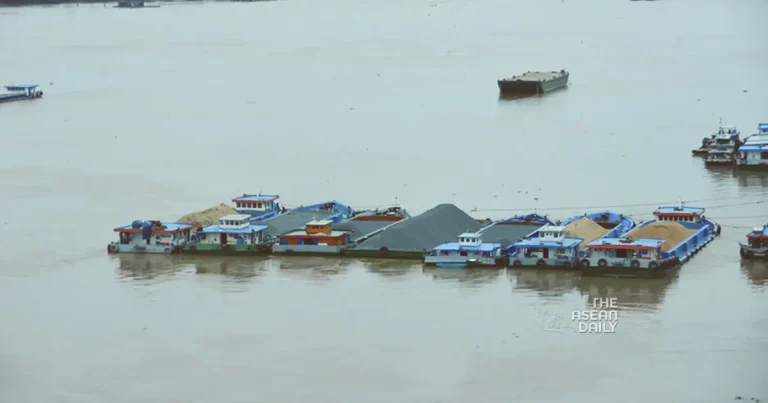6-10-2023 (HANOI) A dire warning from a leading expert has brought attention to the dwindling sand reserves in Vietnam’s Mekong Delta, forecasting a potential depletion by 2035. The continued sand-mining activities and hydropower dams along the Mekong River are endangering the “rice bowl” region, posing severe threats to its people, agriculture, and the economy.
The Mekong Delta, renowned for its biodiversity, is where the Mekong River flows into the South China Sea, sustaining the livelihoods of tens of millions of people. However, the construction of hydropower dams upstream on the Mekong has disrupted the flow of sand downstream, a critical element for the delta’s sustainability.
A major report by the World Wide Fund for Nature (WWF) underscores the significance of the problem. The booming construction sector in Vietnam is rapidly depleting sand resources, with an extraction rate of 35-55 million cubic meters annually. According to the “Sand Budget for Viet Nam Mekong Delta” report, at this rate, the “exploitable stock under the riverbed… can only last as far as a decade.”
Co-author of the report, Sepehr Eslami, explained that if sand reserves are exhausted, there would be a 10 percent increase in areas affected by salt intrusion. This phenomenon has already inflicted significant damage to rice crops in the freshwater Mekong.
Eslami further emphasized that the depletion of sand would lead to “more river bank erosion and larger tides that lead to more flooding and erosion.” In the context of climate change and the looming threat of rising sea levels, the WWF warns that the shortage of sand presents an existential threat to the Mekong Delta.
The Mekong Delta is one of the world’s most rapidly changing and lowest-lying deltas, with a potential reserve of up to 550 million cubic meters of exploitable sand. However, last year, only four million cubic meters of sand reached the delta, significantly below the average of up to seven million.
The actual volume of sand extraction is likely even higher than reported in the study due to unaccounted mining activities at night, primarily conducted by illegal dredgers.
In a recent incident in August, authorities arrested a senior official in An Giang, a Mekong Delta province, for allegedly accepting bribes of $50,000 from a mining company. The Trung Hau 68 Company was found to have extracted more than 4.7 million cubic meters of sand, despite having a license to extract only a third of that volume.
The consequences of the sand shortage are severe, with people’s homes and businesses vanishing into the sea due to coastal erosion in the Mekong Delta. The Ministry of Agriculture and Rural Development reports nearly 800 erosion spots across a total of 1,134 kilometers of sea and river banks in the Mekong Delta since 2016, further emphasizing the urgency of addressing the sand depletion issue.




